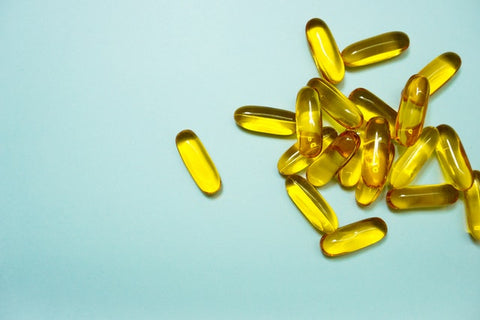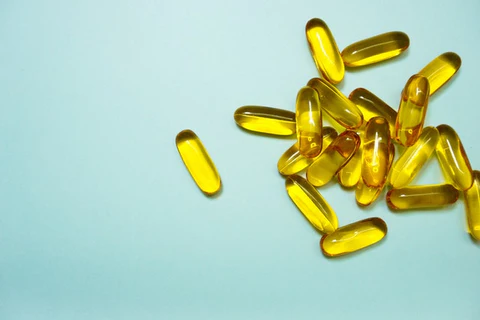It’s shocking how cardiovascular diseases contribute to 32 per cent of deaths globally. Most people ignore that embracing a healthy lifestyle can lower the risk of heart disease. You are never too young or too old to start taking great care of your heart.
Taking heart healthy supplements is among the choices you can make to improve your heart health. Other choices include eating more nutritious foods and exercising. But in this healthy heart guide, we’ll focus on supplements that can boost your cardiovascular system so that you can prevent developing cardiovascular disease.
It’s no secret that supplements help promote healthy muscles, bones, and other body parts. They can also improve blood pressure and lower cholesterol, thus reducing your risk for heart disease. As a result, you’ll be less susceptible to strokes, heart attacks, and blood pressure issues.
You don’t have to be diagnosed with elevated cholesterol or high blood pressure to take supplements. Great options for supplements that nourish the heart may include the following:
- Omega-3 Fatty Acids
Adding fatty fish like salmon, mackerel, and sardines to your diet can boost heart function. These foods are rich in Omega-3 Fatty acids that lower inflammation and blood pressure. You may also consider canola oil, walnuts, chia seeds, and flaxseed oil as sources for omega-3 fatty acids.
A blood test will help you know whether your omega-3 levels are low. If they’re low, the physician will prescribe at least 1 gram per day of omega-3. They may also advise you to increase the dosage if the fat deposits in the blood are high.
Omega-3 fish oil supplements can prevent plaque from building in your arteries. With the reduced plaque, you are at a lower risk of stroke and heart attack.
If you fail to control your body fat levels, you risk suffering from heart disease, stroke, or coronary artery disease. Omega-3 fatty acids can also help extend the lives of people with chronic heart failure.

- Coenzyme Q10
Coenzyme q10 is a naturally occurring nutrient in the body derived from the foods you eat. It’s a vitamin-like substance needed to keep your organs in perfect shape. The nutrient can help prevent congestive heart failure, chest pain, and health failure.
You can get CoQ10 from cauliflower, broccoli, tuna, and salmon. If you’re already taking cholesterol medications, you can supplement it with a CoQ10 supplement. This combination will reduce the joint pain and muscle aches that are side effects of cholesterol drugs.
CoQ10 is known to reduce pressure and improve cholesterol levels. Cells will use this compound to give the body energy. The supplement also functions as an antioxidant to prevent oxidation in the cells.
Coenzymes like CoQ10 works with other enzymes to protect you from skeletal and heat issues. You can also count on them for speedy recovery after working out.
- Magnesium
If your diet lacks magnesium, you risk suffering from hungry bone syndrome, celiac disease, and chronic diarrhoea. Other symptoms include anxiety and depression, muscle spasms, cramping, and low energy.
Low magnesium levels in your body can increase cholesterol and plaque buildup. Taking a magnesium supplement will lower the body’s main stress hormone. It can also reduce inflammation and control blood sugars.
You can find magnesium supplements in different mineral combinations and forms. These forms include magnesium hydroxide, magnesium sulfate and magnesium gluconate.
Magnesium helps maintain a healthy heartbeat to keep you alive. It counters the effects of calcium (which makes the heart contract when it enters the heart’s muscle cells.
The Buddahealth Himalayan Shilajit is rich in trace minerals including magnesium and is a great supplement to add to your diet due to its anti-inflammatory and anti-oxidant properties.
- Folate (folic acid)
A recent study shows those who take folic acid supplements have fewer strokes. Folate can also help lower blood pressure and reduce the risks of heart disease and the risk of heart attacks.
Excess folic acid in your diet may reduce vitamin B13 levels and cause tingling/numbness. Get at least 400 micrograms of this supplement a day. Breastfeeding and pregnant women need 600 micrograms of it.
You can get folate from vegetables and fruits like brussels sprouts, asparagus and spinach. Foliate is also a nutrient found in whole grains, beans and citrus fruits.
- Inositol
Inositol is a carbohydrate used to control blood sugar and make insulin more sensitive. This supplement can also lower the body’s insulin resistance. Taking at least 4 grams of inositol will lower cholesterol levels and improve blood pressure.
Also known as B8, inositol occurs naturally in nuts, grains, beans and fruits. The body can also produce it from the carbs you eat.
When consumed, inositol balances various chemicals in the body to help insulin work well. It also helps with mental disorders like OCD and depression.
Inositol is one of the safest supplements you can take to improve heart health. Its typical side effects include dizziness, headache, tiredness and nausea.
- Vitamin D
Vitamin D helps regulate insulin levels, increase energy and protect bones. You can get it naturally by exposing yourself to the sun for up to 10 minutes, at least twice a week. Foods rich in vitamin D include cereals, fortified milk, tuna and eggs.
If you’re not getting enough of this vitamin, taking a heart health supplement may help. Vitamin D supplements are proven to lower the risk of diabetes and prevent strokes.
Buddahealth offers Vitamin D3 5000iu supplements which is the standard daily amount of vitamin D
A recent study links low levels of vitamin D to high blood pressure. Taking vitamin D supplements can thus help lower blood pressure and reduce the risk of heart disease. Getting a blood test can help you know whether you’re getting enough of this vitamin.
- Grape Seed Extract
As a dietary supplement, grape seed extract is a by-product of dried and pulverized grape seeds. The seeds are rich in antioxidants, known to protect you against inflammation, tissue damage and oxidative stress.
Grape seed extract, as a supplement, can lower your blood pressure when at risk of heart disease. It can also reduce the risk of blood clots and promote blood flow. You can count on it to prevent the oxidation of fats in the blood after having a high-fat meal.
Take up to 300 milligrams of grape seed extract for the best outcomes in your daily heart health lifestyle. Some people may have side effects like nausea, dizziness, itchy scalp and headache. You should speak to a doctor before taking this supplement if you have high blood pressure or a bleeding disorder.
- Fibre
You can naturally get fibre from whole grains, cereals, and beans. If your diet doesn’t give you enough fibre, you should take a supplement and stay hydrated.
When paired with a low cholesterol diet, fibre supplements can help lower cholesterol levels. Soluble fibres found in barley and oats can help remove bad cholesterol. If the bad cholesterol finds its way into the arteries, you’ll be at risk of heart disease.
Men below 50 should have 38 grams of fibre in their diet every day while women 21 to 25 grams. Women should maintain about 16 grams of fibre every day after age 50, while men 30 grams.
- Green tea
As a supplement, green tea helps lower cholesterol and improve blood flow. It can also reduce the risk for heart-related issues like congestive heart failure and high blood pressure. Green tea contains a compound that can unclog blockages in the arteries and dissolve dangerous plaque in the blood vessels.
Green tea can help you maintain a healthy weight to reduce your susceptibility to heart disease. It can boost your metabolic rate and reduce fat buildup in the body if you’re obese or overweight.

- L-Carnitine
L-carnitine is a healthy amino acid that the body uses when fats are converted into energy. It ensures that the body produces enough energy to keep the heart beating.
This amino acid is naturally found in red meat or synthetically as an over-the-counter supplement. It helps remove toxins inside the cells that impair blood flow and cause circulation issues.
The recommended dosage for L-carnitine as a supplement is one to three grams a day. L-carnitine is a great supplement for promoting weight loss and improving athletic performance. It can help you stay fit and maintain a healthy weight to reduce the risk of heart disease.
- Garlic
Garlic comes packed with antioxidants that the body needs to fight cell damage and infections. It can also lower blood pressure, lower cholesterol and improve heart health.
You can consume garlic as a vegetable or a supplement to reap its benefits. Garlic supplements can prevent the build-up of plaque in the arteries. It can also protect the artery walls from becoming overstretched.
Eating garlic can help keep the arteries flexible and elastic. Garlic also lowers bad cholesterol in the body to maintain a healthy heart.
Eat one to two cloves of garlic to improve heart health. One 300-mg tablet a day is enough when taking it in supplement form. Taking more than the recommended amount may cause bad breath, bloating, diarrhoea and stomach upset.
Buy Heart Health Supplements Today
The heart-healthy supplements discussed in this guide can help you improve your cardiovascular health. You can also take them to boost your immunity and ensure that the body gets enough proper nutrients. Consulting with a physician before taking any of these supplements is important for those with a severe heart-related illness.
It’s a good idea to get more natural and organic products to boost your physical and mental wellbeing from Buddalife. At Buddalife, we incorporate our love for mother nature and sustainability in our wide range of multivitamins and supplemental products. Be sur


